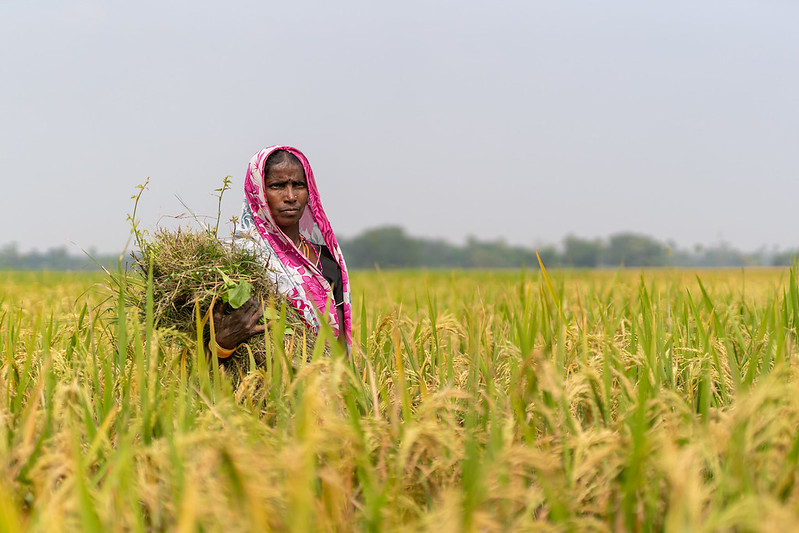VSLAs: CARE Continues to Tackle Global Poverty
 Founded in 1945 after WWII, the Cooperative for American Remittances to Europe (CARE) foundation is one of the oldest organizations focusing on humanitarian relief and global aid. Dr. Lincoln Clark approached 22 American charities to create CARE and deliver immediate relief to those in need in the form of a CARE package. Over the past 80 years, the main priorities have spread to crisis relief, food and water, health, education and work, and empowering young women and girls in over 120 countries. Indeed, CARE’s main goal is to provide “humanitarian assistance to 10% of those affected in major crises, reaching at least 50 million people by 2030.”
Founded in 1945 after WWII, the Cooperative for American Remittances to Europe (CARE) foundation is one of the oldest organizations focusing on humanitarian relief and global aid. Dr. Lincoln Clark approached 22 American charities to create CARE and deliver immediate relief to those in need in the form of a CARE package. Over the past 80 years, the main priorities have spread to crisis relief, food and water, health, education and work, and empowering young women and girls in over 120 countries. Indeed, CARE’s main goal is to provide “humanitarian assistance to 10% of those affected in major crises, reaching at least 50 million people by 2030.”
Gender Barriers and Financial Inclusion
Using the Women’s Economic Justice (WEJ) programs, CARE creates transformative solutions to address systemic gender barriers. Women in these countries face exclusion from financial services, unequal pay and burdensome unpaid care work. However, CARE recognizes the impact that women could have on the economy, predicting that an additional $10 trillion could go to global GDP once gender gaps are over.
The WEJ program strategies include the Village Savings and Loan Associations (VSLAs), which operate at the community level to bring primarily women together and form savings groups. This entails engaging in financial literacy training, pooling resources and accessing low-risk loans. CARE’s initiative focuses on long-term change by incorporating market access programs, private sector partnerships and policy advocacy with local market actors.
VSLAs are a 12-year initiative formed in 2018 to help 65 million people overall. This works to ensure positive impacts on the U.N. Sustainable Development Goals regarding decent work and economic growth, gender equality and sustainable communities.
CARE Fighting Violence
One of the programs built into VSLAs is incorporating men and young boys into the conversation of gender and household responsibilities. One in three women will experience physical or sexual violence in their lifetime. CARE supports women’s empowerment by educating and leading boys to be advocates instead of pushing harmful social norms.
CARE has impacted 121 countries, with more than 1,400 projects and initiatives reaching 53 million people. The results of humanitarian crises affect millions more, including Manju. As she gave birth to her third child, Manju had to deliver dangerously on the side of the road. Bihar, India is one of the country’s poorest and largest states, and 90% rural. Due to long distances between health centers and poor winter road conditions, it took her almost four hours to get to the hospital.
From this emerged the Bihar Technical Support Program, a joint effort by CARE, the Bill & Melinda Gates Foundation and the Government of Bihar. They were able to confront staggering rates of maternal, newborn and child mortality and malnutrition rates. As a result, Bihar has seen 20,000 fewer newborn deaths from 2011-2016, and the maternal mortality ratio has nearly halved between 2005 and 2018.
CARE has achieved a lot around the world since the 1940s, and it provides many ways to get involved, whether through donations, organizing locally or joining one of the CARE networks or committees.
– Rachael Wexler
Rachael is based in Chicago, IL, USA and focuses on Business and Global Health for The Borgen Project.
Photo: Flickr
